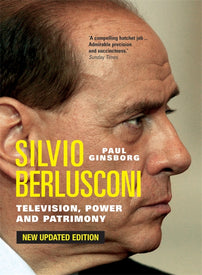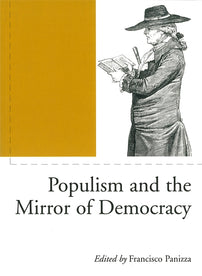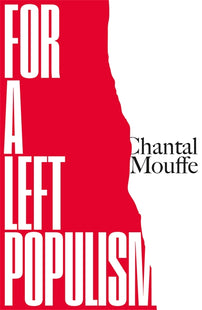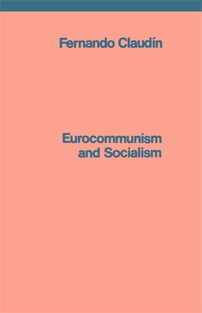Stung Parliament
After the Italian election, the old is dying and something superficially different but not all that new has been born.

The Italian election results, which produced a hung parliament, are surprising but not exactly shocking. While the campaign was mostly lifeless, the Five Star Movement achieved far greater support than expected. It won around 31% of votes, rather than the range in the mid-high 20s suggested by pollsters. As widely forecast, the right-wing coalition proved the largest single bloc, with the extra poison that the hard-right Lega (18%) for the first time surpassed Silvio Berlusconi's Forza Italia (14%). Their electoral pact (including two smaller parties) failed to secure a majority of seats and now risks a split.
This historic shift of power within the right — the now-nationwide Lega secured four times more votes than in 2013, while Berlusconi’s party is weaker than ever — marks a further collapse of what is loosely called the “centre." Not only did Forza Italia fall behind, but Matteo Renzi’s Democrats, who hit 40% at the 2014 European elections, here collapsed below 20%. The decline of the parties who have ruled Italy since the early 1990s is notably expressed in the impossibility of forming a grand coalition, even if other liberal and centre-left forces are included. Parties which achieved 70% of the vote in 2008 were this Sunday below 34%.
The turnout did, as forecast, reach a fresh low, but was only slightly down on 2013 at around 72%. One possible explanation is that pollsters underestimated the youth turnout; this would also help explain why the insurgent parties outperformed their polling figures, while the Democrats and Forza Italia suffered. In the period since the 2008 crisis, the M5S has been particularly able to appeal to younger voters hit by unemployment and precarity, and partly for this reason governed by stronger anti-establishment and Eurosceptic sentiments. They were evidently unimpressed by the outgoing Democrat-led government's celebration of tiny shoots of economic recovery, with over a third of young people unemployed.
It was predicted that the Democrats would come only fourth among blue-collar workers, while the M5S looked set for 40% support among this layer. M5S's power is closely tied to the difficulties in creating new forces to the Left of the Democrats, and the wreckage of recent such attempts. Since the 2008 collapse of Rifondazione Comunista, during the crisis period the M5S has had free rein to represent “anti-establishment” politics. Its "common sense" answers, reflecting the consciousness of the individual unable to make her way in the world yet bereft of collective solutions, were more appealing than a Left which remains trapped in the political/psychological crisis it has endured since the abandonment of the PCI in 1991. Free and Equal, an only soft-left force, scored 3.5%, and the far-Left Potere al Popolo just over 1%.
Social atomisation and disgust with politics did not create easy conditions for either. Rejection of the ruling parties has taken the form of a vote for "outsiders," but the overall panorama is a sharp shift to the right, not least given the absolutely central role of migration and race in this campaign. Whatever the M5S's internal dissensions, its leader has adopted an ever harsher rhetoric on this terrain. Even before he was contemplating a deal with the Lega, he denounced NGO "migrant taxis" and called for a target of "zero boats" with migrants from Africa. M5S ultimately responds to a pessimistic vision of Italian society, in which solidarity does not exist, collective ambition is impossible, and public spending is only something to be cut.
M5S parliamentarians have long abstained on controversial issues, from migration to gay rights, in order to maintain the movement's “catch-all”, oppositional image. Entering government demands greater political definition. M5S promises to speak to “all political forces” — probably including the Lega — about the way ahead, but clearly risks being unbalanced should it ally with some more cohesive force. Yet while the party system is fluid, even a pact with the Lega will not automatically see voters turn back to the Left. If M5S could represent the forces of discontent, it could do this because what is still called the "centre-Left" has been hollowed out over decades.
The M5S is not an Italian Front National. It is not even a strongly Eurosceptic force, having abandoned this cause in the name of presenting a more "professional" and less "extreme" face. Nor does it offer some new democratic vision. Far from empowering citizens to mobilise for social change, its guru proposed a well-worn set of ideas based on removing “ideology” from the realm of state administration, in this drawing on the technocratic ideals of typewriter kingpin Adriano Olivetti. It repeats a hackneyed cry of making Italy a “normal country," free of corruption and inefficiency, even though it has already abandoned its own anti-corruption charter.
Be that as it may, the M5S captured a wider discontent, and looks best-placed to try and form a government. Its prime ministerial candidate Luigi di Maio's range of choices, plus the evident difficulties forming an opposite, grand coalition, mean that this could go on for several weeks. This will invariably feed a narrative of mounting "EU chaos" or "destabilisation" coming from Rome. But least of all should we rely on the baleful tweets of Le Pen or Farage to tell us what is happening. Even if it does reach office, M5S is not about to bring down the EU (it already abandoned calls for a euro referendum) and nor is Fascism Returning In Its Historic Heartlands.
The rise of Lega and the M5S is grim news for anyone who believes in progressive politics, or who retains some memory of the Italian Left's past glories. In France, when Macron and Le Pen reached the second round, we could at least see that France Insoumise had laid down a marker. In the UK Labour has advanced, and even in the US the Sanders campaign provided a platform for Left renewal. 4 March offered no such room for hope. But nor is panic about some alleged "rising Fascism" going to offer it. As one old Marxist once put it: the old is dying, and something superficially different but not all that new has been born. May other things be born, and soon.
David Broder is a historian of French and Italian communism. He is currently writing a book on the crisis of Italian democracy in the post-Cold War period.
[book-strip index="1" style="display"]




